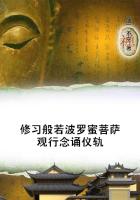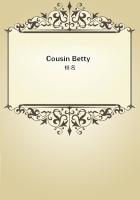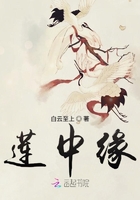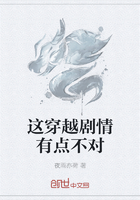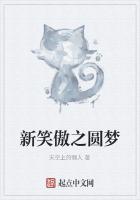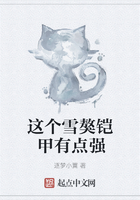Upon this there was a great outcry, and the young councillors of both parties interested themselves in the contest, which, you see, began pretty warmly. The Presidents interposed between us, conjuring him to have some regard to the temple of justice and the safety of the city, and desiring that all the nobility and others in the hall that were armed might be turned out. He approved of it, and bade M. de La Rochefoucault go and tell his friends so from him. Upon which I said, "I will order my friends to withdraw also." Young D'Avaux, now President de Mesmes, then in the Prince's interest, said, "What! monsieur, are you armed?"--"Without doubt," I said; though I had better have held my, tongue, because an inferior ought to be respectful in words to his superior, though he may equal him in actions. Neither is it allowable in a Churchman when armed to confess it. There are some things wherein men are willing to be deceived. Actions very often vindicate men's reputations in what they do against the dignity of their profession, but nothing can justify words that are inconsistent with their character.
As I had desired my friends to withdraw, and was entering into the Court of Judicature, I heard an uproar in the hall of people crying out "To arms!" I had a mind to go back to see what was the matter; but I had not time to do it, for I found myself caught by the neck between the folding doors, which M. de La Rochefoucault had shut on me, crying out to MM.
Coligny and Ricousse to kill me.
[This action is very much disguised and softened in the Memoirs of Rochefoucault. M. Joly, in his Memoirs, vol. i., p. 155, tells it almost in... the same manner as the Cardinal de Retz.]
The first thought he was not in earnest, and the other told him he had no such order from the Prince. M. Champlatreux, running into the hall and seeing me in that condition, vigorously pushed back M. de La Rochefoucault, telling him that a murder of that nature was horrible and scandalous. He opened the door and let me in. But this was not the greatest danger I was in, as you will see after I have told you the beginning and end of it.
Two or three of the Prince de Conde's mob cried out, as soon as they saw me, "A Mazarin!" Two of the Prince's soldiers drew their swords, those next to them cried out, "To your arms!" and in a trice all were in a fighting posture. My friends drew their swords, daggers, and pistols, and yet, as it were by a miracle, they stopped their hands on a sudden from action; for in that very instant of time, Crenan, one of my old friends, who commanded a company of the Prince de Conti's gendarmes, said to Laigues, "What are we doing? Must we let the Prince de Conde and the Coadjutor be murdered? Whoever does not put up his sword is a rascal!"This expression coming from a man of great courage and reputation, every one did as he bade them. Nor is Argenteuil's courage and presence of mind to be less admired. He being near me when I was caught by the neck between the folding doors, and observing one Peche,--[Joly calls him "The great clamourer of the Prince." See his Memoirs, p. 157.]-- a brawling fellow of the Prince's party, looking for me with a dagger in his hand, screened me with his cloak, and thereby saved my life, which was in the more danger because my friends, who supposed I was gone into the Great Chamber, stayed behind to engage with the Prince de Conde's party. The Prince told me since that it was well I kept on the defensive, and that had the noise in the hall continued but a minute longer, he would himself have taken me by the throat and made me pay for all; but I am fully persuaded that the consequences would have been fatal to both parties, and that he himself had had a narrow escape.
As soon as I reentered the Great Chamber I told the First President that I owed my life to his son, who on that occasion did the most generous action that a man of honour was capable of, because he was passionately attached to the Prince de Conde, and was persuaded, though without a cause, that I was concerned in above twenty editions against his father during the siege of Paris. There are few actions more heroic than this, the memory of which I shall carry to my grave. I also added that M. de La Rochefoucault had done all he could to murder me.'
[The Duke answered, as he says himself in his Memoirs, that fear had disturbed his judgment, etc. See in the Memoirs of M. de La Rochefoucault, the relation of what passed after the confinement of the Princes.]
He answered me these very words: "Thou traitor, I don't care what becomes of thee." I replied, "Very well, Friend Franchise " (we gave him that nickname in our party); "you are a coward " (I told a lie, for he was certainly a brave man), "and I am a priest; but dueling is not allowed us." M. de Brissac threatened to cudgel him, and he to kick Brissac.
The President, fearing these words would end in blows, got between us.
The First President conjured the Prince pathetically, by the blood of Saint Louis, not to defile with blood that temple which he had given for the preservation of peace and the protection of justice; and exhorted me, by my sacred character, not to contribute to the massacre of the people whom God had committed to my charge. Both the Prince and I sent out two gentlemen to order our friends and servants to retire by different ways.
The clock struck ten, the House rose, and thus ended that morning's work, which was likely to have ruined Paris.
You may easily guess what a commotion Paris was in all that morning.

